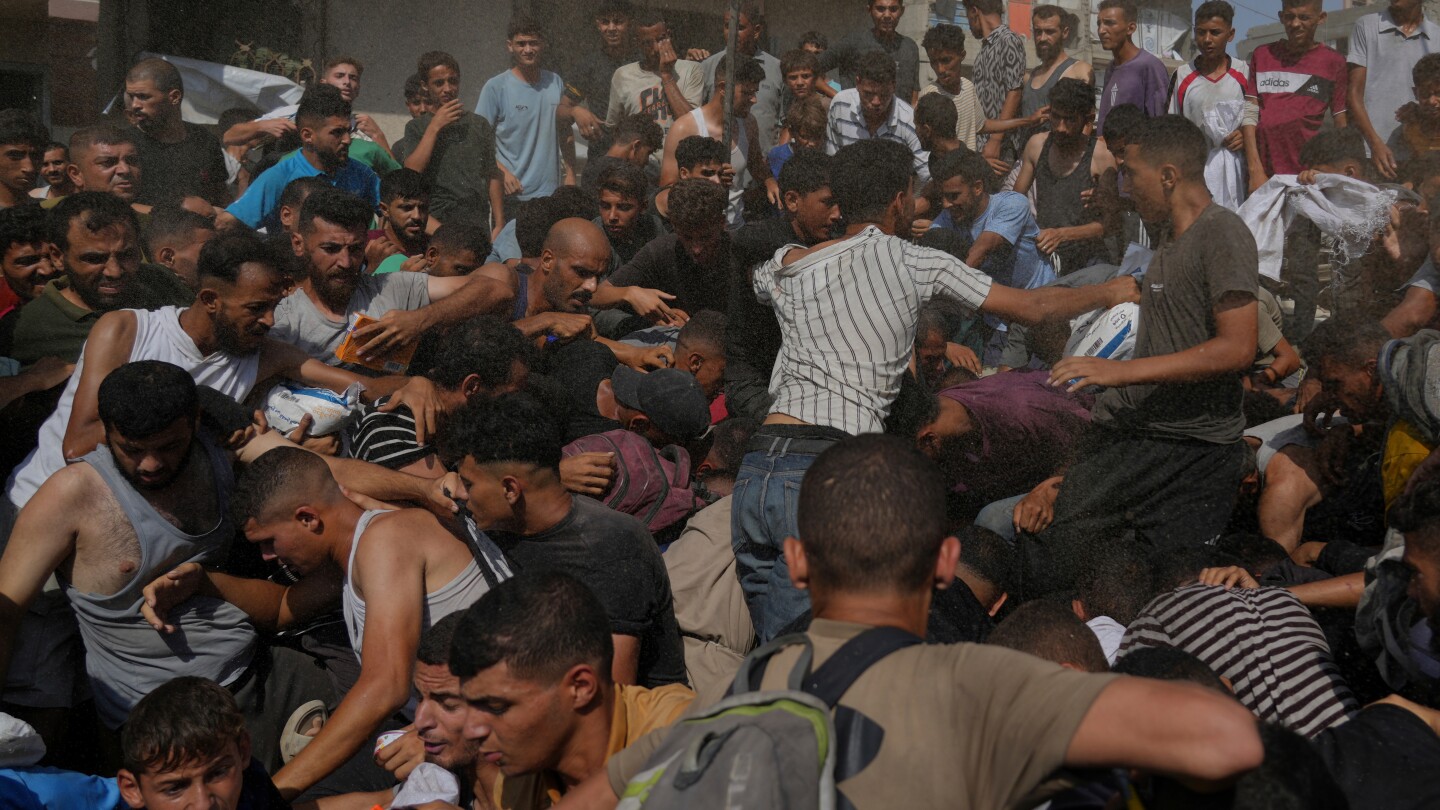Thousands of people converged on southern Israel on Tuesday to mourn the dead as the nation marked two years since Hamas’ Oct. 7 attack plunged the region into a devastating war, while Israel and Hamas hold indirect talks in Egypt.
The main memorial is being organized by the bereaved families, separate from a ceremony the government will hold on the anniversary next week according to the Hebrew calendar. The split reflects deep divisions over Israeli Prime Minister Benjamin Netanyahu ’s leadership, which many blame for the failure to secure a ceasefire that would free the remaining hostages held by the militants.
In the Gaza Strip, where Israel’s retaliatory offensive has killed tens of thousands of people and razed entire towns and cities, those who can are fleeing another Israeli invasion of Gaza City while others are sheltering in place. Many are unable to make the arduous and costly journey south.
The indirect talks between Israel and Hamas in the Red Sea resort of Sharm el-Sheikh aim at hammering out details for the first phase of U.S. President Donald Trump’s peace plan. That includes a ceasefire to allow for the release of all remaining hostages held by Hamas in exchange for hundreds of Palestinian prisoners in Israel.
What to know:
Oct. 7 attack: It’s been two years since thousands of Hamas-led militants poured into southern Israel after a surprise barrage of rockets, storming army bases, farming communities and an outdoor music festival. They killed some 1,200 people and abducted 251 others, most of whom have since been released in ceasefires or other deals. 48 remain inside Gaza.Trump’s peace plan: The U.S. president’s plan has received wide international backing and raised hopes for an end to a devastating war that has upended global politics, left tens of thousands of Palestinians dead and the Gaza Strip in ruins. Many uncertainties remain, including the disarmament of Hamas — a key Israeli demand — and the future governance of Gaza.Over 67,000 Palestinians killed: That’s according to Gaza’s Health Ministry, part of the Hamas-run government, which does not say how many were civilians or combatants. It says women and children make up around half the dead, and many independent experts say its figures are the most reliable estimate of wartime casualties. Experts and major rights groups have accused Israel of genocide. Israel vehemently denies the allegations.

